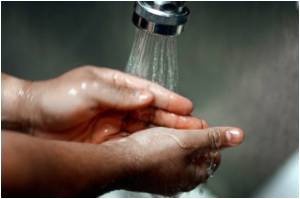A new study has pointed out that drying ones hands well after washing them helps in stopping the spread of bacteria.

Our bodies naturally have bacteria called commensals all over them. However, bacteria from other sources, such as raw meat, can also survive on hands, and can be easily transferred to other surfaces, increasing the risk of cross-contamination. When hands are washed the number of bacteria on the surface of the skin decreases, but they are not necessarily eliminated. If the hands are still damp then these bacteria are more readily transferred to other surfaces.
In this study the researchers quantified the effects of hand drying by measuring the number of bacteria on different parts of the hands before and after different drying methods.
Volunteers were asked to wash their hands and place them onto contact plates, which were then incubated to measure bacterial growth. The volunteers were then asked to dry their hands using either hand towels or one of three hand dryers, with or without rubbing their hands together, and levels of bacteria were re-measured.
Dr Snelling and her team found that rubbing the hands together whilst using traditional hand dryers could counteract the reduction in bacterial numbers following handwashing.
Furthermore, they found that the relative reduction in the number of bacteria was the same, regardless of the hand dryer used, when hands are kept still. When hands are rubbed together during drying, bacteria that live within the skin can be brought to the surface and transferred to other surfaces, along with surface bacteria that were not removed by handwashing.
A study has been published in the Journal of Applied Microbiology.
 MEDINDIA
MEDINDIA


 Email
Email






